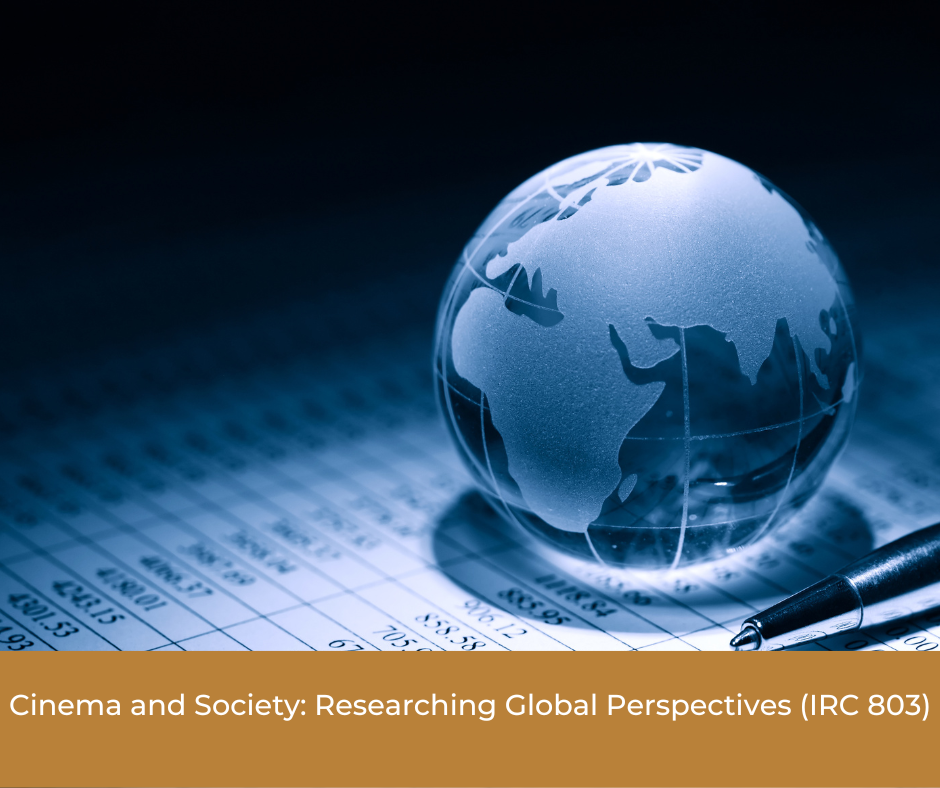Course Description: This course provides a comprehensive exploration of cinema’s pivotal role in both reflecting and shaping societies on a global scale. Students will delve into international film movements, investigate cultural contexts, and engage in research endeavors to discern the profound influence of cinema on various communities. By analyzing a diverse range of films from around the world, students will gain insights into the cultural, social, and political dimensions of cinema and its capacity to inspire change.
Outline of Major Content Areas:
- Global Cinema Movements:
- In-depth analysis of regional cinema movements, with a focus on Asian cinema and African cinema.
- Exploration of the historical and cultural significance of these movements.
- Study of key films, directors, and trends from Asia and Africa.
- Film and Social Change:
- Examination of cinema’s role in instigating social change and activism.
- Case studies of films that have played a pivotal role in addressing societal issues.
- The influence of cinema on collective consciousness and its capacity to drive transformation.
- Representation and Diversity in Cinema:
- Analysis of the portrayal of diverse cultures, genders, and ethnicities in global cinema.
- The impact of representation on societal perceptions and identity.
- Contemporary debates surrounding diversity and inclusion in the film industry.
- Film Festivals and Their Cultural Significance:
- Exploration of major film festivals from different regions, including Cannes, Berlin, and others.
- The role of film festivals in celebrating cultural diversity and fostering cross-cultural dialogue.
- Comparative analysis of films showcased at these festivals.
- Research Projects:
- Comparative Studies of Global Cinema: Students will conduct comparative analyses of films from various global regions, examining themes, storytelling techniques, and cultural contexts.
- Social Impact Analysis: Students will research the social impact of select films, considering their role in influencing public discourse and societal change.
- Cross-Cultural Cinema Trends: This project will involve the exploration of cross-cultural cinema trends, identifying common elements and unique cultural nuances.
Course Learning Outcomes:
Upon successful completion of this course, students will be able to:
- Demonstrate a deep understanding of significant global cinema movements, with a particular emphasis on Asian and African cinema.
- Analyze the impact of cinema on social change, activism, and its role in addressing societal issues.
- Assess and critically discuss the representation of diverse cultures, genders, and ethnicities in global cinema.
- Evaluate the cultural significance of international film festivals and their role in fostering cross-cultural dialogue.
- Conduct in-depth research on the societal impact of select films and their influence on public discourse.
- Explore cross-cultural cinema trends and identify common elements while appreciating cultural nuances.
- Develop advanced research and analytical skills to investigate the multifaceted relationship between cinema and society.
Methods for Assessing Student Learning:
The assessment of student learning in this course will encompass a variety of methods to evaluate comprehension, critical thinking, and research abilities. These methods include:
- Film Analyses: Students will submit analytical essays on films from Asian and African cinema movements, demonstrating their ability to critically assess the cultural and social dimensions of these works.
- Research Projects: Research assignments will evaluate students’ ability to conduct in-depth research on topics related to cinema and society, particularly focusing on film’s role in social change and representation.
- Class Discussions and Debates: Active participation in class discussions and debates on topics such as film festivals, diversity, and social impact will be assessed.
- Oral Presentations: Students will present their research projects, providing an opportunity to share findings, engage in academic discourse, and refine their presentation skills.
- Examinations: Periodic quizzes and examinations will assess knowledge of key concepts, historical contexts, and the impact of global cinema movements.
- Comparative Studies: Students will submit comparative studies analyzing cross-cultural cinema trends, highlighting shared elements and cultural distinctions in various films.
These assessment methods are designed to encourage critical thinking, research capabilities, and active engagement with the complex relationship between cinema and society on a global scale. Students will gain a comprehensive understanding of cinema’s role in reflecting and shaping societies worldwide and develop the skills to conduct meaningful research in this dynamic field.
